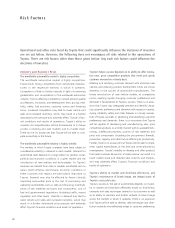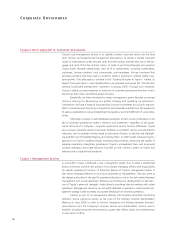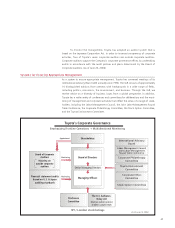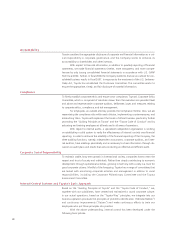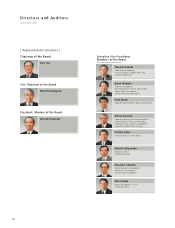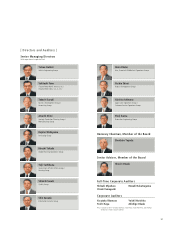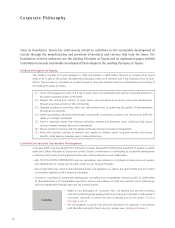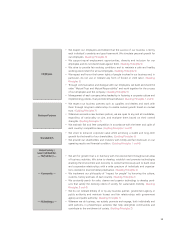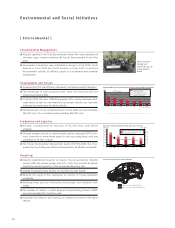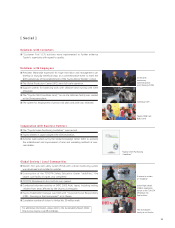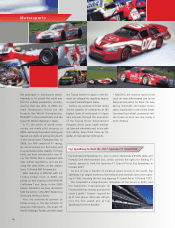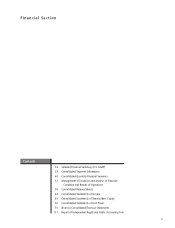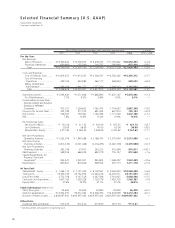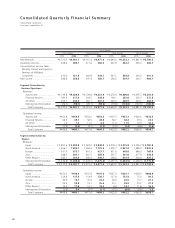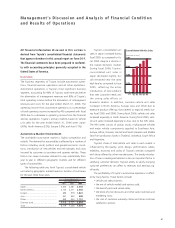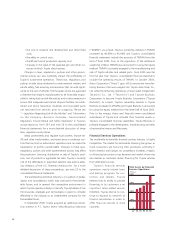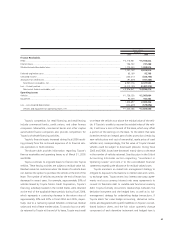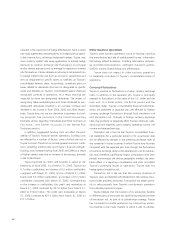Toyota 2006 Annual Report Download - page 56
Download and view the complete annual report
Please find page 56 of the 2006 Toyota annual report below. You can navigate through the pages in the report by either clicking on the pages listed below, or by using the keyword search tool below to find specific information within the annual report.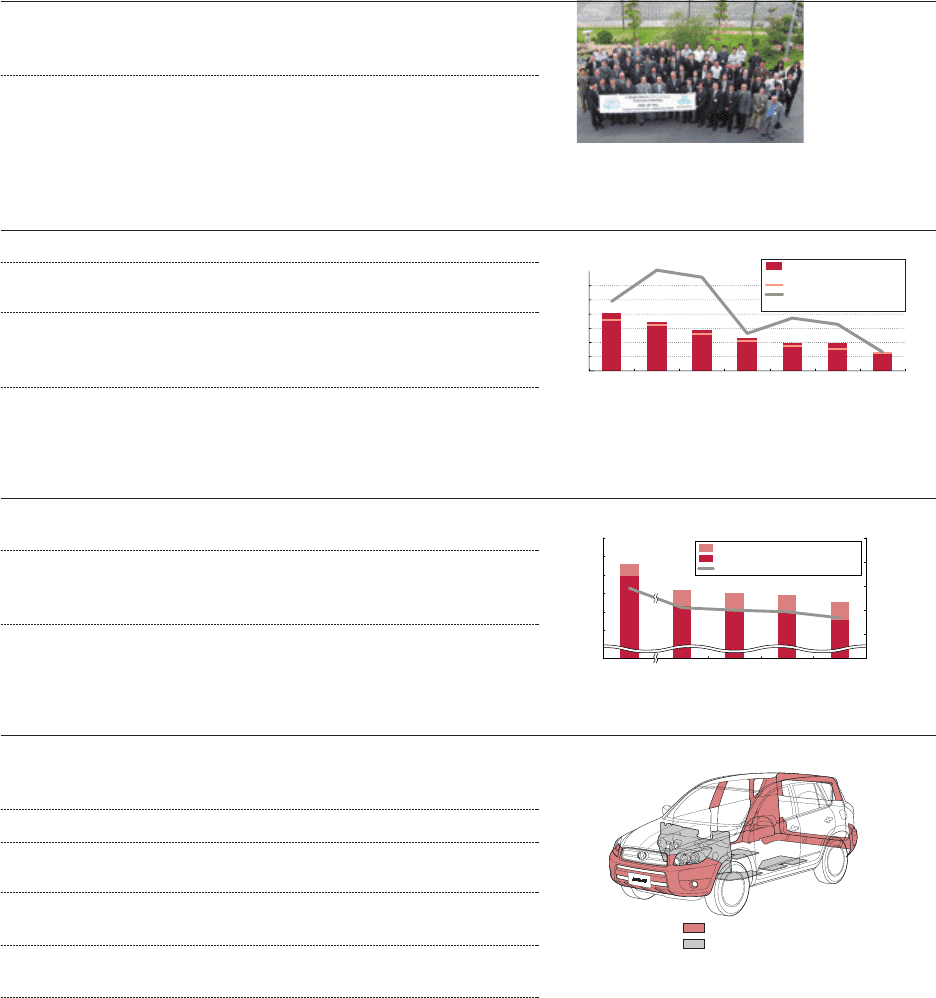
54
[ Environmental ]
South American
Environment
Committee (set up
in May 2006 in
Brazil)
Environmental and Social Initiatives
’03 ’04 ’05’91 ’06
0
180
160
140
200
220
240
20
10
0
30
40
50
21.0 20.0 19.3
29.1
167 162 159
199
17 18 19
13
184 180 178
16.8
151
20
171
212
CO2 Emissions (Energy Consumption) and CO2 Emissions per Sales Unit
(Million tons) (Tons / ¥ Billion)
Total CO2 emissions from non-production areas
Total CO2 emissions from production areas
CO2 emissions per sales unit
FY
Total CO2 emissions (energy consumption)
CO2 emissions per sales unit
TSOP Toyota Super Olefin Polymer
RSPP =
=
Recycled Sound-Proofing Products
Easy-to-Recycle Materials Used in the New RAV4
Actual Fuel Efficiency of Toyota Vehicles in FY 2006 and 2010 Fuel Efficiency Standards
Cumulative Number of Hybrid Toyota Vehicles Sold Worldwide
0
5
10
15
20
25
30
35
2,266∼ 2,016∼ 1,766∼ 1,516∼ 1,266∼ 1,016∼ 828∼
(km/L)
(Number of Vehicles)
(Weight category: kg)
Average fuel efficiency of Toyota
vehicles in fiscal 2006
2010 Fuel Efficiency Standards
Best fuel efficiency among Toyota
vehicles in each category
700,000
600,000
613,296
Environmental Management
■All goals specified in the Third Environmental Action Plan were achieved and
initiatives begun toward achieving the Fourth Environmental Action Plan
goals.
■Environment Committees were established in Europe in fiscal 2004, North
America in fiscal 2005 and South America in fiscal 2007 to reinforce
environmental activities by affiliates subject to consolidated environmental
management.
Development and Design
■Achieved the 2010 Fuel Efficiency Standards in all vehicle weight categories.
■The percentage of total production that meets the Ultra-Low-Emission
Vehicle level reached 96%.
■In March 2006, the Lexus GS450h equipped with a newly developed dedi-
cated hybrid system for rear-wheel-drive passenger vehicles was launched,
widening the market base for hybrid vehicles.
■Worldwide sales of Toyota hybrid vehicles in fiscal 2006 were approximately
263,000 units, for a cumulative total exceeding 600,000 units.
Production and Logistics
■All goals, including that for reduction of CO2emissions, were almost
achieved.
■Through energetic actions to reduce volatile organic compound (VOC) emis-
sions, conversion to water-borne paints for the top coating (base coat) was
completed on all lines in Japan.
■The Toyota Environmental Management System (TOYOTA-EMS) that incor-
porates the Toyota Way was defined and expanded to all affiliates worldwide.
Recycling
■Steadily implemented measures to recycle / recover automobile shredder
residue (ASR) and recover airbags and CFCs / HFCs from end-of-life vehicles
toward the smooth operation of the Automobile Recycling Law.
■Steadily incorporated new designs for recycling into new models.
■Reduced the usage of four substances of concern at Toyota operations
worldwide.
■Developed new practical dismantling technologies and marketed them
widely.
■The number of vehicles in which Recycled Sound-Proofing Products (RSPP)
was used exceeded the 10-million mark.
■Promoted the collection and recycling of batteries from end-of-life hybrid
vehicles.


